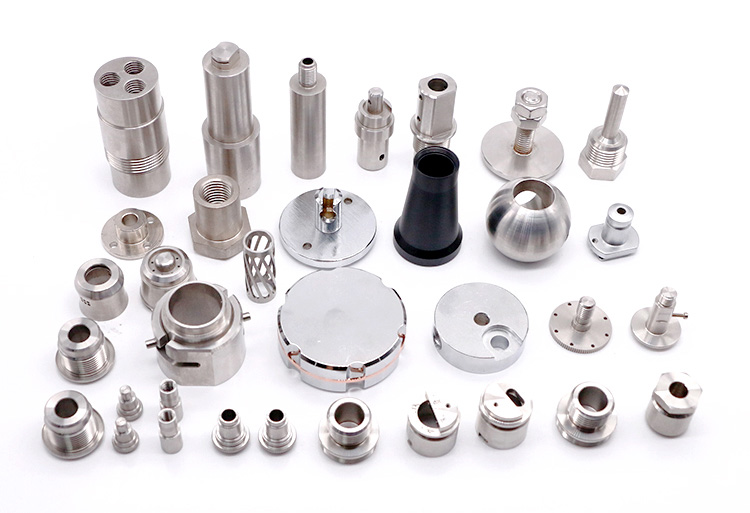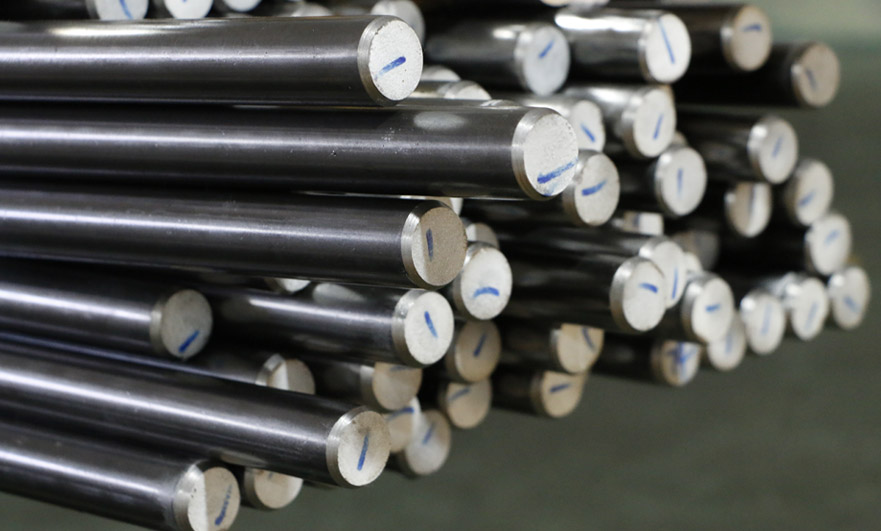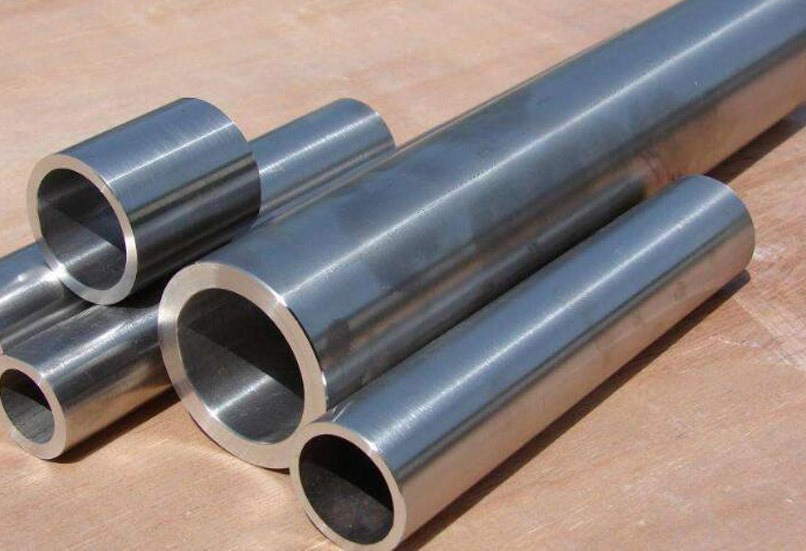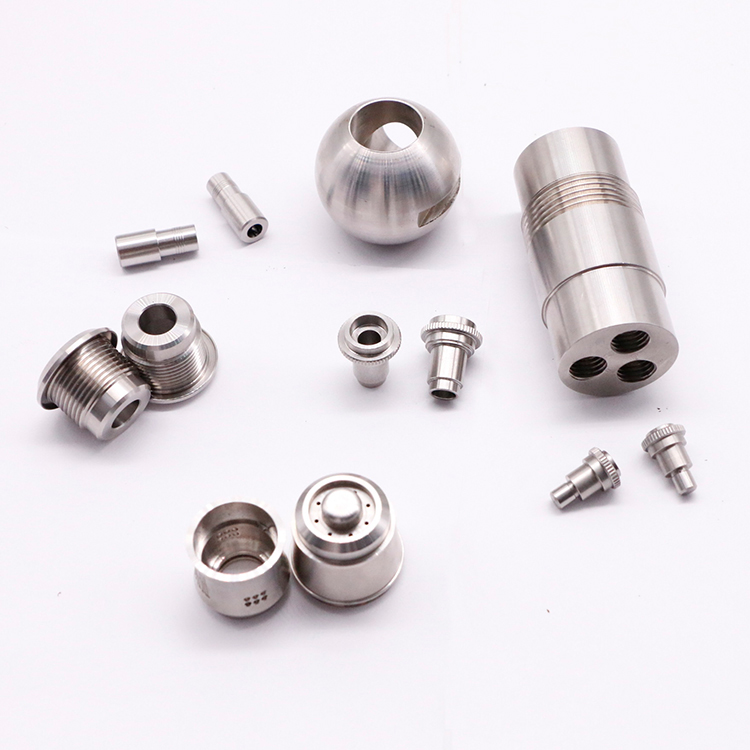15 years one-stop China custom CNC machining parts factory

Hey there I’m VMT Sam!
With 25 years of CNC machining experience we are committed to helping clients overcome 10000 complex part-processing challenges all to contribute to a better life through intelligent manufacturing. Contact us now
 249 |
Published by VMT at Aug 17 2022
249 |
Published by VMT at Aug 17 2022
301 and 304 Stainless Steel: Which material is better?
When shopping for stainless steel, you may see many options for 301 stainless steel and 304 stainless steel.
These are our two most popular types of stainless steel today. But what's the difference? Below, we break down history, JIS SUS304, the product types and applications of these two very different materials to help you decide which stainless steel is best for your project.
301 stainless steel
301 stainless steel was first used as a stainless steel alloy in the early 1900s, refined over time and is still used in many industries today.
The history of 301 stainless steel began with the discovery in the late 1800s, when stainless steel was first discovered by French scientists who were trying to create a corrosion-resistant alloy.
Scientists have been able to create the new metal by mixing chromium and nickel with carbon, iron and other elements. The new material was called chrome-nickel steel and later stainless steel because of its good resistance to corrosion.

What is grade 301 stainless steel?
301 Austenitic chromium-nickel stainless steel with the lowest nickel content. 6%. Ideal for applications requiring high strength and corrosion resistance such as springs, electrical components, stamped components, connectors and belts.
The most common grade is AISI. 301 (on 1.4310).
Excellent formability, good weldability and high strength. It also has excellent toughness for stainless steel and the highest yield strength of all austenitic grades, which means it can withstand high compressive loads without cracking or excessive deformation.
Type 301 Stainless Steel
Below we categorize the different product types. 301 stainless steel for your choice.
301 stainless steel coil: 301 stainless steel coil is a hardenable austenitic stainless steel with high strength, moderate corrosion resistance and good formability. It is the most widely used of all austenitic stainless steel coils, and its properties make it an excellent choice for a variety of applications, making it a popular choice in many industries. Over the years, NS 301 grade coils have been known by many names, including SUS301.., Asthma 301 or EN 1.4310.
301 Stainless Steel Strip: Grade 301 stainless steel strip, with a nominal composition of at least 16% chromium and 6% nickel, provides good strength and ductility when cold worked. It also has good corrosion resistance. 301 stainless steel strip is suitable for welding. , forming and stretching. This high-strength grade of steel is available in a variety of conditions or tempered states.
301 stainless steel plate: 301 stainless steel plate and plate is a stainless steel containing chromium and nickel. The presence of these elements in the alloy makes it very resistant to corrosion and oxidation. 301 stainless steel sheet must be resistant to corrosion in applications where it is used in fields such as the marine industry, chemical reactors and food processing equipment.
301 stainless steel rod
301 stainless steel wire
301 stainless steel tube

304 stainless steel
Grade 304 stainless steel has a chromium content of at least 18%. The chromium content is the main factor that makes this material resistant to corrosion, the second factor is the high carbon content, which makes the metal hard and hard.
Originally produced before 1913, he was looking for an alloy that would resist corrosion in molten iron. By adding chromium to the iron, he was able to create an alloy that would not corrode when exposed to molten iron. (i.e. antioxidant).
Today, 304 stainless steel is used in many applications, including marine applications, because of its resistance to corrosion from seawater and brackish water. It is also resistant to chemicals such as chlorine and brine solutions. (salt spray).
What is the grade of 304 stainless steel?
Grade 304 stainless steel, also known as 18-8 stainless steel, is a non-magnetic alloy containing 18% chromium and 8% nickel. It is the most widely used grade of stainless steel that combines high strength and corrosion resistance.
Due to its high chromium content, it is resistant to corrosion by many chemicals, but not immune. For this reason, JIS SUS304 304 is used in food and beverage contact equipment, as well as in many industrial applications where corrosion resistance is required.
304 Excellent uniformity, easy to manufacture. It has good solderability and can be connected by the most common soldering techniques.
304 has good machinability and can be machined or ground without difficulty, but is not suitable for deep drawing operations because the amount of strain hardening on the surface can cause the material to become brittle.
Due to its corrosion resistance, 304 can be made into various shapes and is used in many industries such as marine, chemical processing, petrochemical refineries and pulp and paper mills.
Type 304 Stainless Steel
304 stainless steel coil: 304 stainless steel coil is a low carbon, molybdenum containing, austenitic stainless steel coil. Its chemical composition is at least 18% chromium and 8% nickel. This grade of stainless steel coil is used for corrosion resistance to a variety of chemical corrosive agents, as well as good mechanical properties. Corrosion-resistant grade 304 stainless steel is ideal for food processing equipment and surgical instruments, offering superior formability and weldability compared to other grades of stainless steel.
304 stainless steel strip: 304 stainless steel strip is the most widely used chromium-nickel stainless steel strip, here we dedicate to you, here we dedicate to you, here we do our best for you. Here, we are here to serve you. Here, we are here to serve you.
304 stainless steel plate: 304 stainless steel plate is often used in the food and beverage industry, as well as other industries where the material must be hygienic. This material is also commonly used in the construction of power plants.
304 stainless steel rod
304 stainless steel wire
304 stainless steel tube

What's the difference?
As can be seen from the grades and standards, 301 stainless steel and 304 stainless steel are very different. Each has its own advantages and disadvantages, depending on what you are looking for in your project. For side-by-side comparisons, you can further refine the differences.
Feature
301 stainless steel:
304 stainless steel:
Cost
Relatively cheaper than 301 stainless steel. 304 stainless steel. However, many Chinese suppliers offer a variety of stainless steels at competitive prices.
Durability
It is more durable than 304 stainless steel. 301. This is because 304 has a higher chromium content and is more resistant to corrosion, 304 contains 18% chromium, and 301 contains only 16% chromium.

Application
Due to its high strength and good corrosion resistance, high-quality 301 stainless steel is widely used in:
304 stainless steel can be used in a variety of applications, including:
1. Food and beverage processing food industry
Stainless steel, boilers, and tanks for manufacturing equipment such as 304 water heaters.
2. Medical devices
The hospital uses 304 stainless steel to make various medical devices, including operating tables, bedpans, neonatal incubators, etc.
3. Industrial machinery
Industrial machinery manufacturers rely on stainless steel for valves, pumps and other parts in 304 products.
4. Construction equipment
Manufacturers use 304 stainless steel to create weatherproof materials that protect buildings from rain and snow during construction or renovations.
Frequently Asked Questions
Will 304 stainless steel rust?
304 stainless steel won't rust, but only if it gets wet. The only time 304 stainless steel will rust after being left for hours or days after water or other liquids have been spilled on the surface.
Is 304 stainless steel suitable for outdoor use?
In general, 304 stainless steel is suitable for outdoor use, but only if it is properly treated and coated. Some manufacturers offer coatings such as powder coating or epoxy powder coating to protect the finish from environmental exposure.
The above is just the opinion of VMT CNC machining factory for 301 stainless steel and 304 stainless steel material, if you have a better one, you can contact us: inquiry@vimetal.com.cn to discuss with us before.
VMT is mainly engaged in custom precision CNC machining parts, metal and plastic prototype processing. Its business covers 62 countries around the world, covering military, medical, semiconductor, automotive and other fields. 40+ materials and 15+ surface finish options with free service design, project reviews and DFM analysis. To ensure the quality of parts, we passed the ISO9001 quality system and SGS on-site factory audit in 2015. No matter how complex your part structure is, or your product encounters technical problems, we can provide you with professional service! Save 15% of time cost and communication cost for you!
Ready To Start Your Next Project?
Get Instant Quote

Request a Free Quote
Send us a message if you have any questions or request a quote. We will get back to you ASAP!
